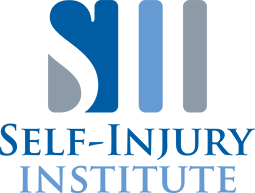Certification
Certification in STSI
SII offers an intensive semester-long program designed to fully train experienced therapists in Systems Therapy for Self-injury (STSI). The first half of the program is devoted to conceptualization and the second half to treatment (see General Syllabus below). The class meets weekly for three hours. Students are encouraged to begin taking on new self-injury cases during or after Week 12, so as to begin applying the SII model in real-world settings.
Once students begin applying STSI to real-world cases, they are encouraged to participate in weekly consultation groups. Participation in these groups can ensure that the model is being applied correctly, and can help answer questions not addressed in class as well as address obstacles to treatment.
Students are also encouraged to attend a weekly process group with other SII students and Fellows. This group is exclusively for associates of the Institute and is designed to address self-of-therapist issues that may be interfering with therapy or otherwise influencing treatment. Participation in the process group is optional, but is often a highly effective means of assisting students and Fellows to address their own blood- and injury-related anxieties, identify and monitor family-of-origin projections, and monitor cultural biases.
Certificates are awarded upon successful completion of the program, submission and approval of a real-world treatment plan, and positive evaluation of three recorded or observed real-world sessions.*
Admission to the program is based on application, outside references, and a personal interview.
Click here to fill out the certification program application.
Classes are held at the SII offices located at 6222 Wilshire Blvd., Suite 200, Los Angeles, CA, 90048.
Certification Program TBA
Location: SII Offices
Start date: TBA
End date: TBA
Meeting time: TBA
Tuition (class only): $1500
Optional consultation group: $40 per meeting
Optional process group: $30 per session
General Syllabus (subject to modification)**
Week 1: 11 principles of the SII model; 2 profiles of NSSI
Week 2: Optimal human functioning; the four messages
Week 3: NSSI and Borderline Personality Disorder
Week 4: NSSI as a family problem; treatment failures
Week 5: Basic brain anatomy and the nervous system
Week 6: Fear circuitry; neurobiology of rage
Week 7: The continuum of social emotion; NSSI and suicide
Week 8: The family of the rage-based self-injurer; rules against selfhood
Week 9: The family of the attention-seeking self-injurer; social media pressures
Week 10: Assessment of the family
Week 11: Formulation of a treatment plan: Structural interventions
Week 12: Formulation of a treatment plan: Strategic interventions
Week 13: Shaping a trusting relationship with the IP
Week 14: Psychoeducation of the family
Week 15: The Pivot: Facilitating accountability
Week 16: When things go wrong
Week 17: Removal of the therapist from the system
*SII reserves the right to withhold the STSI certificate in the event that a student violates applicable ethical codes or is convicted of a crime. A student who successfully completes the academic aspects of the program, but who exhibits interpersonal difficulty, may be required to participate in the otherwise optional process group for a predetermined number of sessions before becoming eligible for certification.
**Absence Policy: Students who miss one or two class meetings must schedule one-on-one tutoring sessions with a Fellow of SII so as to not fall behind on the material. Students who miss more than two class meetings may either schedule make-up tutoring sessions with a SII Fellow, or may be asked to leave the program at the sole discretion of the Institute.
